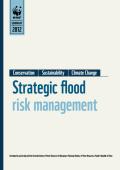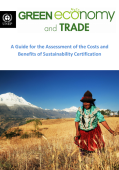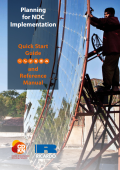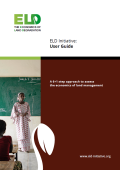
The paper Strategic Flood Risk Management summarises the findings of a collaborative effort between WWF, the General Institute of Water Resources & Hydropower Planning (GIWP), Ministry of Water Resources, People’s Republic of China and a number of leading international experts. This paper focuses on basin water allocation planning and is one in a series of three covering (i) strategic basin allocation planning (ii) strategic basin planning, and (iii) strategic flood risk management.

A Guide for the Assessment of the Costs and Benefits of Sustainability Certification seeks to provide guidance on how to approach an assessment of the broader costs and benefits deriving from sustainability certification. It has the objective to provide a general introduction to the CBA methodology.

This Guide for Designing Mandatory Greenhouse Gas Reporting Programs draws on the experience of 13 existing and proposed programs to guide policymakers and practitioners in developing such GHG reporting programs. Business, industry associations, civil society and funding agencies may also find this guide useful in facilitating their participation in the development of a reporting program.

The purpose of this Planning for NDC Implementation: Quick Start Guide and Reference Manual is to support developing countries in implementing their NDCs. It is accompanied by a Reference Manual which provides more detail on the activities that countries can include in their implementation plans.

This Practitioner's Guide: Pathways and Options for Action and Stakeholder Engagement has been developed to facilitate engagement between stakeholders to identify options and pathways to action that can help tackle or adapt to the challenges of land degradation. It is based on materials developed for a Massive Online Open Course (MOOC) on ‘Options and pathways for action: Stakeholder Engagement’.

This document A 6+1 Step Approach to Assess the Economics of Land Management serves as an instructional and guiding text for stakeholders interested in performing cost-benefit analyses for sustainable land management options using the ELD Initiative supported approach, and includes examples from the initiative and its partners to demonstrate how each part of the process functions practically.
The goal of this toolkit Supporting Small Forest Enterprises – A Facilitator’s Toolkit. Pocket Guidance Not Rocket Science! is to help supporters of small and medium forest enterprises (SMFEs) work more effectively. It is aimed at 'facilitators', for example donors at the international level and, most importantly, government extension services and non-governmental organisations at the national level.
This report Guidelines for a Methodology to Support Value Chains for BioTrade Products: From the Selection of Products to the Development of Sector Strategies lies in a proposal developed by UNCTAD’s BioTrade Initiative as part of the BioTrade Facilitation Programme (BTFP). The BioTrade Facilitation Programme (BTFP) is a programme that operates within UNCTAD’s BioTrade Initiative.
The report Emissions Trading Registries: Guidance on Regulation, Development and Administration, prepared by the World Bank's Partnership for Market Readiness (PMR), provides policymakers and other stakeholders with technical insights and guidance on how to support country-specific decision making and activities related to registry development.
The purpose of this Planning for NDC Implementation: A Quick-Start Guide is to support developing countries in implementing their Nationally Determined Contributions (NDCs). It is accompanied by a reference manual which provides more detail on the activities that countries can include in their implementation plans.
